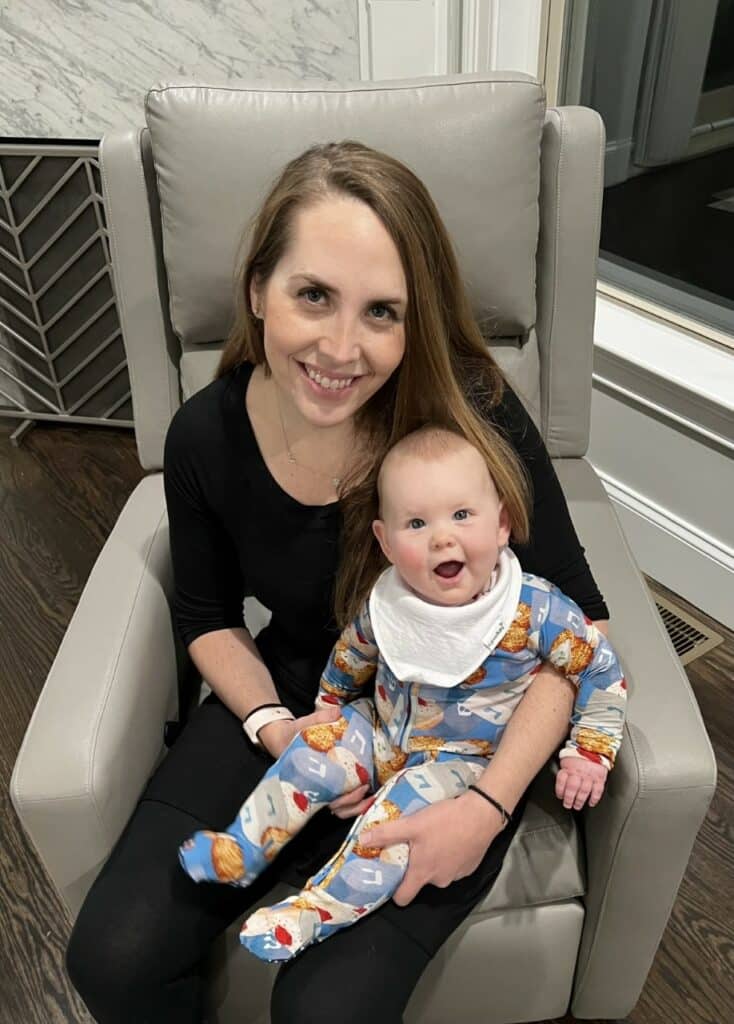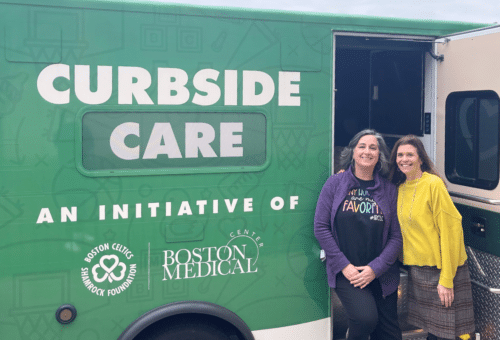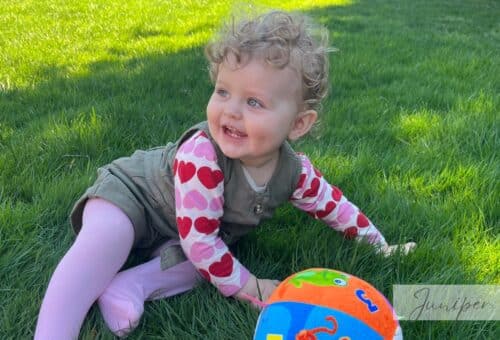
Neonatal Dietitian, mother, milk donor, baker extraordinaire and so much more . . .
Charna Simon, MS, RD, LDN, CNSC, a Neonatal Dietitian caring for some of the most vulnerable infants at Massachusetts General Hospital, has lived in the Boston area since college. Today, in honor of March being National Nutrition Month, this hardworking mom, milk donor and baker extraordinaire is generously answering some of your most frequently asked questions . . .
What inspired you to donate your milk to Mothers’ Milk Bank Northeast?
Pasteurized Donor Human Milk (PDHM) is a crucial part of my job as a Neonatal Dietitian in the MGH NICU. I have always been in awe of women who are able to donate. It is hard to see moms in our NICU struggle to keep up with their baby’s needs, but we are fortunate to have access to PDHM. When I gave birth to my daughter, it was at the peak of the formula shortage crisis. I was worried about the possibility that I may not produce enough milk and then be unable to obtain formula if I needed it. When I realized that I had plenty of milk to spare, I felt extremely fortunate. I chose to donate with the fun likelihood that my milk could end up in the NICU in which I work.
The beauty of breast milk according to a Neonatal Dietitian working in the NICU . . .
What is it that’s found in human milk that’s not in formula? From a nutritional standpoint, what does this mean?
Formula manufacturers try their best to get as close to human milk as possible, but breast milk is such a dynamic living fluid that it’s impossible to be 100% equal. Human milk contains antibodies, hormones, stem cells, white blood cells, helpful bacteria/probiotics, prebiotics, enzymes, nucleotides, and special types of fat. Over the years, a lot of these components have been added to formula, but not necessarily to the same extent as human milk. For example, you may find one strain of probiotic in formula vs. multiple in breast milk.
The most beautiful thing about breast milk, is that it adapts to a baby’s needs for growth, supporting their health over time. Breast milk is generally more easily tolerated with nutrients that are more readily absorbed compared to formula. In the NICU it allows for better tolerance and potentially reduced frequency/severity of infection.
We’re often asked why donor milk is particularly beneficial for premature and medically fragile infants. What is it about their digestive systems that makes formula so difficult to digest?
When thinking about our premature and medically fragile infants, their gut is not mature or fully intact –you will hear the term “leaky gut.” They also have lower amounts of digestive enzymes. Breast milk helps to decrease “leaky gut” or intestinal permeability compared to formula. Breast milk also contains enzymes to further improve digestion compared to premature formulas. Decreased “leaky gut” allows for better absorption, better tolerance, and less infection concerns. The components of breast milk are also much more bioavailable (have the ability to be absorbed and used by the body) compared to formula.
Becoming and evolving as a Registered Neonatal Dietitian . . .
You’ve worked as a Neonatal Dietitian for ten years. What inspired you to pursue this career?
I always had a love for food and medicine, and clinical nutrition allowed me to combine the two. Food is quite literally medicine for the infant population. It is extremely rewarding to see my interventions promote growth with the ability to follow babies from birth to discharge.
You have been with MGH for approximately 10 years now. Have you seen infant nutrition or the approach to infant nutrition evolve in that time?
For sure, a lot has changed. One of the best changes is the recognition of importance and support for using PDHM for longer durations in our most fragile babies. It is key to improving outcomes for feeding tolerance and to preventing NEC (necrotizing enterocolitis) for babies whose moms may not be able to produce enough milk.
And just for fun . . .
You’re an extremely busy person. How do you like to relax and unwind?
I love to bake, cook, travel, go on walks, go out to eat, and spend time with my family. If I wasn’t a dietitian, I would probably consider opening my own bakery. I’ve even dabbled in creating lactation treats!
Even a Neonatal Dietitian has to have some guilty pleasures. What’s your indulgent meal or snack of choice?
All foods fit, but French fries are definitely my kryptonite.









